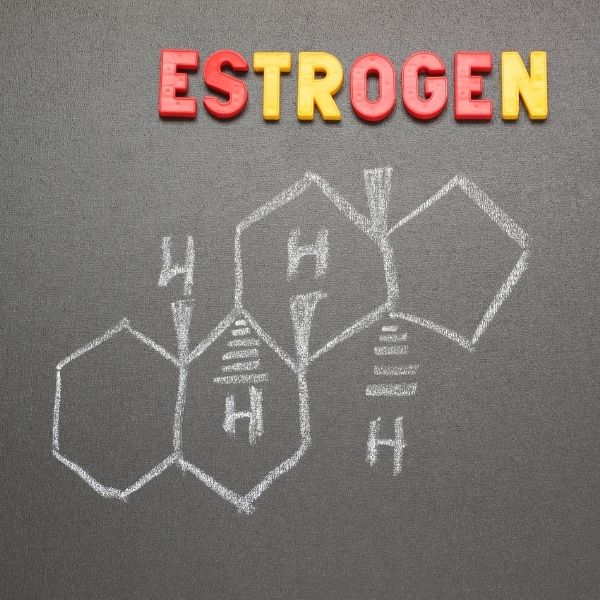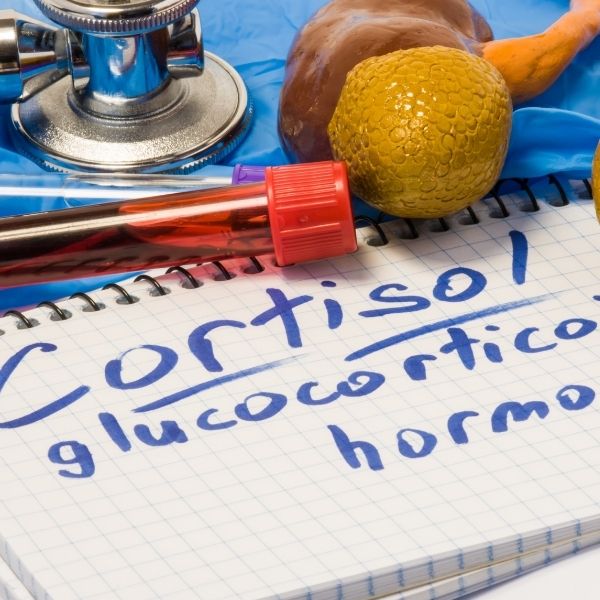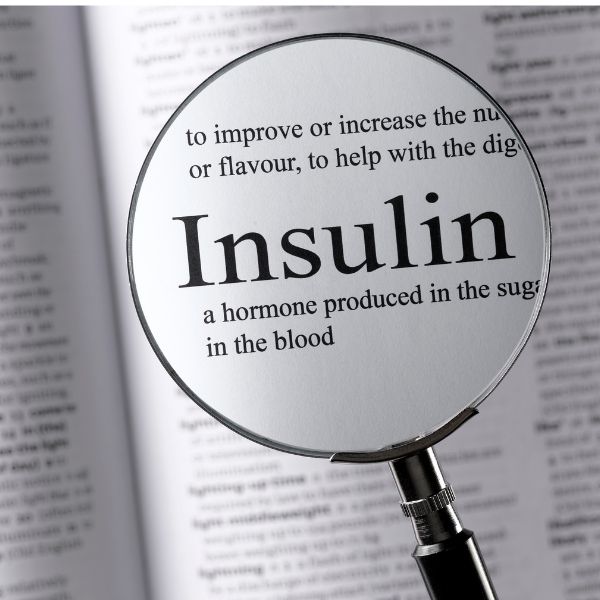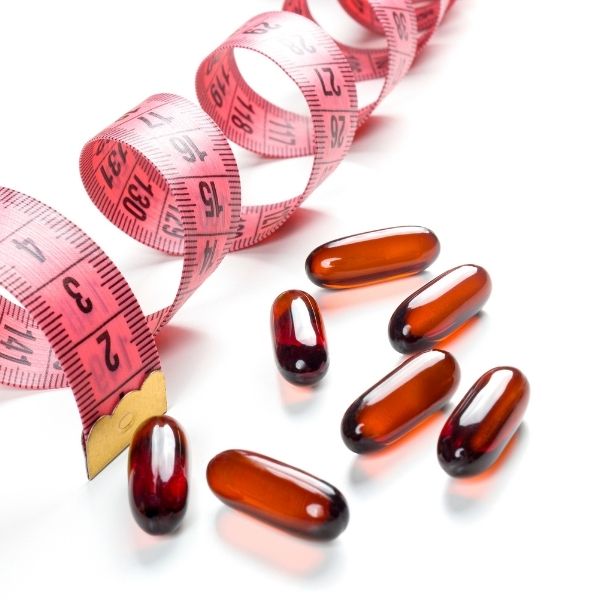Five Hunger Hormones
Hormones are essential to body balance, weight management and overall wellness. Hormones work together, and when one or more are not in balance, our bodies react with weight loss or weight gain, fatigue, mood problems and can develop into chronic conditions. Hormones are often overlooked, especially in men, but it is essential to have regular blood tests to make sure they are balanced.
It is possible to control weight loss, weight gain, energy levels, and fatigue by understanding how hunger hormones work. This article dives into five hunger hormones found in the pancreas, gut, fat cells, adrenal glands, and brain.

There is much debate about healthy weight loss and reducing the stress excess weight can place on our joints and organs. It is a challenge, and most of us may need to address our diet at some point. However, hormones are the key to balanced weight loss and gaining control.
Loving and accepting our body is an essential part of personal wellness. Monitoring our hormones, especially if we carry more weight for our body frame, is critical to balanced body function.
Here are five main peptides and protein hormones that control hunger and eating:
1. Ghrelin (hunger hormone)
2. Estrogen
3. Cortisol
4. Insulin
5. Leptin
1. Ghrelin (pronounced: grel in)
Ghrelin is best known as the ‘hunger hormone’.
Ghrelin is a stomach hormone released into the gut and bloodstream, sending a signal to the pituitary gland, part of the brain’s limbic system telling us it is time to eat.
Obese and overweight people release more ghrelin telling the body to eat more regularly. Reducing body weight is essential in regulating the amount of ghrelin released into the system.
Controlling Ghrelin Levels
As dull as it might sound, eating a balanced diet will keep this hormone correctly active.
- Reduce all sugar intake (read the labels on packages and avoid fructose corn syrup, sugars and dense carbs
- Eat some protein with each meal (sprinkle a plant-based protein powder in a shake or cereal.
- Increasing fibre will assist. Try Psyllium seed husk as a supplement in the mornings in a shake or sprinkled on cereal.
- Eat more healthy fats like avocado, chia seen, fish and almonds and walnuts.
Body Detox and Fasting
Reducing body weight is essential. Innovative fasting programs like the one at New Leaf Wellness Resort in Thailand and others worldwide can significantly assist in resetting the ghrelin hormone. The New Leaf Fasting method offers a balanced, low calorie, highly nutrient-dense diet with natural proteins.
Growth Hormone (GH)
Men can release more growth hormones triggered by ghrelin when fasting. Balancing this with a small amount of protein will give a sense of fullness and reduce the ghrelin, decreasing appetite.
Summary
Reduce all types of sugars except natural fruit. Increase protein in each meal with more fibre and natural fats like almonds, walnuts and avocado. Supplement if needed.
2. Estrogen
Estrogen is a vital female sex hormone produced by the ovaries and small amounts by the brain, heart, liver and adrenal gland.
Incorrect estrogen levels cause many women’s weight gain and loss issues. Estrogen changes the body’s relationship with fat during menopause and increases visceral fat around the stomach, decreasing it from thighs and hips. During productive years estrogen maintains fertility. It can also promote fat storage during the first trimester of pregnancy.
Balancing Estrogen
Eating these foods will significantly assist in estrogen balance helping in weight loss, and correct fluid retention:
- Brussels sprouts
- Bok choy
- Arugula
- Cabbage
- Broccoli
- Collard greens
- Cauliflower
Summary
Reduce fatty foods and sugar. Eat more leafy green vegetables and supplement when needed.
Get regular checkups to measure estrogen balance.
New Leaf Wellness Resort’s KP and Air Page speak about the Hunger Hormones in episode #10 of the New Leaf Wellness Podcast.

3. Cortisol (stress eating hormone)
Commonly referred to as the ‘stress hormone’, we add ‘eating’ to the subtitle calling it the ‘stress eating hormone as it can cause overeating and weight gain. Cortisol is the fight or flight hormone that increases blood pressure, heart rate, and survival.
The adrenal gland above the kidneys produces cortisol. Cortisol works with the brain to control mood, motivation, fear and excitement.
Cortisol is a hormone getting much press for a decade and plays a vital role in our overall wellbeing.
The cortisol connection to weight gain comes from increased blood sugar. The sugar is processed into fat excess body fat occurs. Overstressed and long-term stress can cause the body to over product cortisol, leading to Cushing syndrome. Cushing’s can produce rapid weight gain and develop into diabetes.
When the body produces too little cortisol, this can lead to another disease, Addison’s. Addison’s has the reverse effect of Cushing’s, where the body becomes weak and exhausted with changes in skin texture, loss of appetite and weight.
Managing Cortisol
Reducing stress is the key to having a balanced amount of cortisol. Avoid heavy dieting and overly stressful situations.
- Get plenty of rest
- Schedule time to relax with music or a book
- Learn simple meditation
- Eat all meals at the correct times of the day
Summary
It is hard to avoid all stress, but it is essential to relax. Scheduling time to relax and unwind is critical to prevent spiking this hormone.
4. Insulin
The beta cells of the pancreas produce Insulin. Insulin is the king of fat. Most know it as blood sugar regulation, and it does that too. However, it decides where the blood sugar is distributed in the body, whether it stores the fat or breaks it down.
Insulin is most active after a meal. Insulin resistance and increased insulin levels are significant issues today through overeating and eating the wrong foods.
Hyperinsulinemia, highly elevated insulin levels, causes many weight-related diseases such as metabolic syndrome and obesity.
Controlling Insulin Levels
- Avoid Overeating
- Avoid sugar
- Avoid refined carbohydrates
- Eat more natural healthy fats (avocados, nuts)
- Supplement with Magnesium (ask your doctor)
- Regular light exercise
Summary
The lower the insulin levels, the easier it is for the body to regulate weight, energy and blood pressure.
5. Leptin
Leptin is a fat hormone and works with Insulin to regulate fat storage. Leptin’s role is to inform the brain when enough fat is stored and not produced. Obsessive overeating causes Leptin resistance.
Obese people have four times the Leptin driving resistance and weight gain. The resistance fails to tell the brain to stop eating, and the obese person cannot stop eating.
Controlling Leptin
Many people regain weight after weight loss—the imbalance of hormones and leptin is the leading cause. The imbalance tells the brain the body is starving, and insatiable hunger ensures causing weight gain.
Eat more natural good fats and anti-inflammatory foods and additives:
- Tumeric
- Fatty fish
- Omega 3
- Green Tea
- Peppers
- Avocados
- Mushrooms
- Get plenty of sleep
Conclusion
Body inflammation can cause many health issues, including cancers. It is essential to eat good fats and fresh vegetables.
The body is a highly complex system. Everything is connected and works in harmony with each other. Aiming for balance must be our primary health goal. Focusing on weight loss or other specific issues needs to be secondary. Other related health issues balance too by taking care of our hormonal balance.
Get in Touch
If you’d like to know more about COVID-19 recovery or the New Leaf Wellness Resort programme please contact us here.
Note: New Leaf Wellness prefers iHerb as a stable supplier of supplements.





